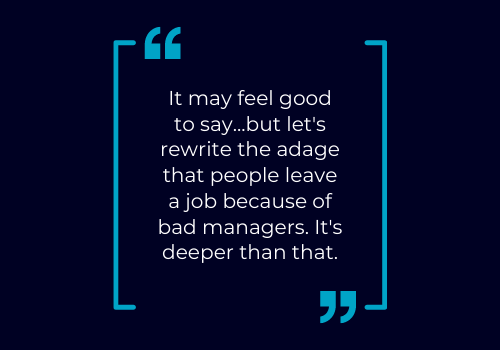One Reason We Define Our Culture at Electro
03/04/2022
By: Jim Struble

I’m currently reading a fantastic book called The Obstacle is the Way. There’s example after example of leaders in the past who have faced nearly impossible problems yet reacted positively: Marcus Aurelius, John Glenn, Rubin “Hurricane” Carter, and more. Intentionally or unintentionally, they have trained themselves to respond differently to difficult circumstances than most of the world. They maintain composure, are objective, and somehow see opportunity in every disaster that befalls them. We find ourselves looking up to these leaders and celebrating them as heroes because they seem natural at what they do. Leading people comes naturally, as they always seem to respond positively, no matter the circumstance.
Wouldn’t it be great if all managers and leaders were like this? Unfortunately, we aren’t. Nobody is writing a book about most of us because we are fallible human beings! When faced with adversity, a bad sales month, or even a mean person on the street, we naturally have adrenaline pumping through our veins. From it, we may make mistakes, panic just a little, and our anxiety goes through the roof for days thinking about the problem. That’s being human.
Unfortunately, for many, that spills over into our personal and professional lives. We come home and are short to our spouse or kids. We overreact to emails when we read the tone wrong and respond when we shouldn’t. That’s also being human.
At home, some can overcome this and are generally people who are very intentional about how they act toward their family. They have set boundaries with work and family time and don’t allow them to impact one another. Or, they’ve had a time where that wasn’t the case, and have learned from it. Such is the case for me personally. There was a time I spent too much time working at home when I should have been playing with my kids and talking to my spouse. Whatever the reason, their actions at home are intentional and against the fundamentally human nature of reacting to obstacles.
At work, it can be a totally different story! People see their boss mad and hop to action regardless of the circumstances. The boss’s boss then praises them for “motivating the troops” and “making things happen.” At work, acting out of frustration can bring positive short-term results. We all know the adage, “People don’t leave a job for money; they leave because of bad managers.” In the long run, everyone loses because great employees quit.
This is one of the many reasons we define our culture at Electro Savings Credit Union. When we face obstacles, it’s counter-culture to point fingers and place blame. Instead, we hold ourselves accountable by communicating transparently with data, collaborating openly, and caring for one another personally and professionally. We’ve placed cultural boundaries to work against taking the “path of least resistance,” which is generally blame and shame. In defining our culture, we’re forcing ourselves to act more like Marcus Aurelius, John Glenn, Rubin “Hurricane” Carter, and others who faced obstacles with a clear head and intentional actions. In doing so, we’re training ourselves to be better leaders, a better employer, and a more true reflection of who we are at our core.
I would like to challenge and change the adage, “People don’t leave a job for money; they leave because of bad managers.” From my experience, “bad managers” can be fantastic people outside of work. They may give generously to others, love deeply, and act courageously. “Bad managers,” in most cases, have been thrust into positions where no one has defined how they should act. Or, in many cases, have had misbehaviors reinforced for so long they’ve developed terrible leadership habits. There have been no cultural guidelines for them to follow, no accountability for hurting or minimizing others, and without any defined culture, they take the path of least resistance.
Let’s start recognizing the importance of formally defining company cultures because I believe, “People don’t leave a job because of money, and they don’t leave because of bad managers; they leave because their company culture is never defined.” That is the root of the problem and where leaders should focus their efforts.
Our staff deserves consistent leadership, just like those who bank with us deserve consistent and caring service. Being the best employer we can, translates to us becoming the best financial institution for our members and our communities.






